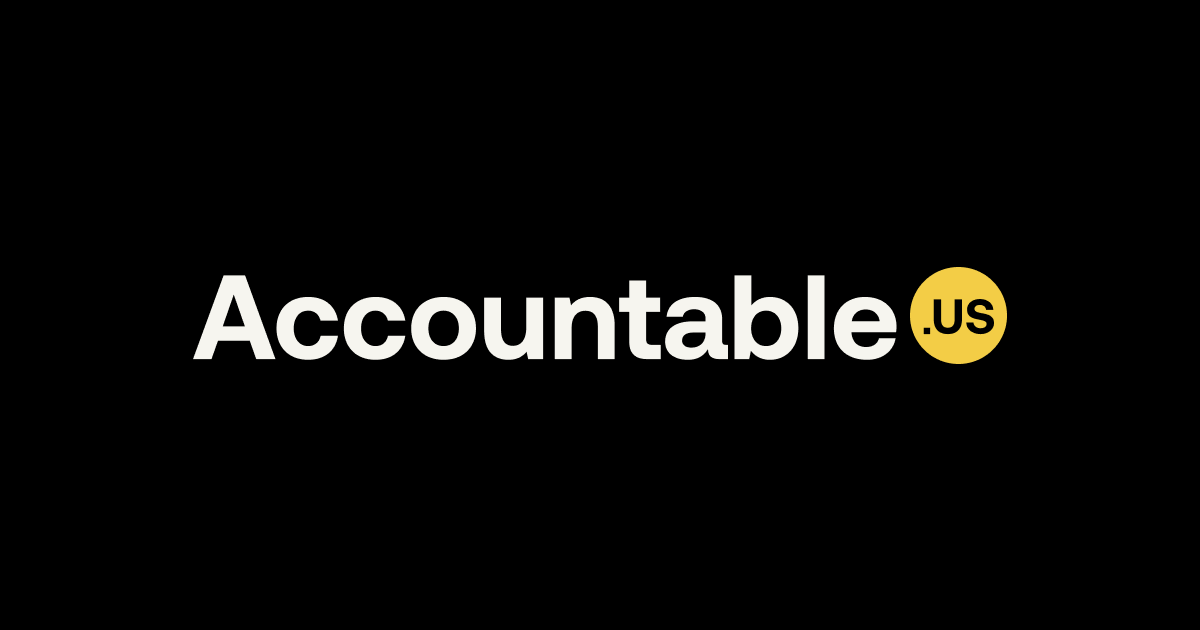Report
Project 2025’s Recipe For Success: Hide Agenda, Avoid Paper Trails, Create Secret Plans

In recently unearthed videos, Project 2025 outlines for potential future political appointees the myriad of ways they should hide their tactics from public scrutiny:
- FOIA-able information is a “frightening proposition”
-
- “SPEAKER ONE: What every political appointee needs to know is that all their communications, all their emails, all their calendars, that is all subject to FOIA and anyone can request those records from a federal agency. SPEAKER TWO: That’s a frightening proposition.” [Project 2025 Private Training Video: Oversight and Investigations, 18:06]
- Hold meetings instead of communicating by email and creating a paper trail
-
- “You know the adage we hear a lot now is like, wow, this meeting could have been an email…What you probably want to do, is if you need to resolve something…it’s probably better to walk down the hall, button hole a guy and say hey, what are we going to do here? Talk through the decision, work it out. If you reduce it to writing, maybe you can protect it under some of these exemptions but man, that’s a lot of a fight. You’re probably better off going down to the canteen, getting a cup of coffee, talking it through and making the decision as opposed to sending him an email and creating a thread that Accountable.US or one of those other groups is going to come back and seek, and you’re going to have to explain why you’re withholding it and you’re going to fight in court, it’s going to be a lot of expense. It’s an email that’s better resolved by a meeting.” [Project 2025 Private Training Video: Oversight and Investigations, 19:20]
- Keep the agenda secret, otherwise career staff will leak it to the news
- “You need to keep your agenda pretty close. You got to be careful who you tell it to because if you run it through a normal process…it’s going to be in the paper tomorrow all right uh uh and the Washington Post has contacts in every agency at pretty much every level all right so if you publicize if you publicize it even within a room it’s going to if it is newsworthy it’s going to be there.” [Project 2025 Private Training Video: Advancing the President’s Agenda, 17:49]
- With communication methods subject to FOIA, in-person meetings allow appointees to speak “more freely”
-
- “On the hill and in the House of Representatives the typical preferred communication methods are email text or even signal chat but “When you work for the federal government everything you put in an email, text, or note is FOIAable and releasable to the American people. At interior, we had a ton of in person meetings which allowed us to speak a little more freely about the topics of the day.” [Project 2025 Private Training Video: Staffing an Office , 3:11]
- Eliminate voluntary notice and comment procedures for rulemaking
- “Some agencies foolishly subject matters relating to Grants to notice and comment…They do it voluntarily even though it’s not required. Now, fortunately those agencies typically will also give the secretary the authority to wave any internal agency rule for good cause so at those agencies you need the secretary to waive the internal rule and say we’re not going to subject this grant issue to notice and comment and that’s how you would get it done there. But I would also say when you first get into the agency take a look at this and if you’re one of those agencies that has these Provisions get rid of it…just eliminate that regulation. Bottom line, if your agency does not require notice and comment for grants you’re off to the races, get going, move quickly and if your agency does there’s a workaround, have the secretary waive it and also longer term just try to eliminate the regulation that requires that now.” [Project 2025 Private Training Video: Navigating Policymaking , 31:37]
- Radically reduce reporting and compliance requirements for recipients of federal funds
-
- “They wanted to substitute essentially one complicated framework that was tied to a racial balancing with another slightly less complicated grantee reporting and compliance system that was tied to socioeconomic status. If you take federal funds, you have to do all this reporting, you have to balance things out. but my argument was that the whole thing was unnecessary…basically our point was just like just get rid of the whole thing. And, because of its simplicity, it was so much easier to draft, it was easier to explain to people, and it was easier to justify. [Project 2025 Private Training Video: Navigating Policymaking , 35:35]
Additionally, new footage revealed Project 2025 leader Russ Vought’s strategy for a future administration doubles down on the secrecy:
- One of Vought’s aides admitted that it is a priority to make documents as hard to FOIA as possible. They want the potential transition team to be familiar with Project 2025’s plans, without a papertrail that reporters can access.
- Vought has developed secret plans to hand deliver to a future conservative transition team, which will not be published. CNN reported that in the video, “Vought said his group, the Center for Renewing America, was secretly drafting hundreds of executive orders, regulations, and memos that would lay the groundwork for rapid action” and described “his work as creating ‘shadow’ agencies.” His plans aim to “destroy agencies’ notion of independence.”
It is clear that escaping oversight and accountability is a priority for Project 2025’s vision of a future conservative administration.
